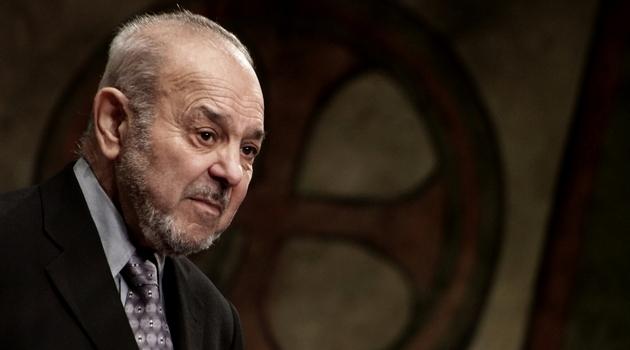Karel Holomek: Migration crisis not new, Roma migrated from Slovakia post-WWII and to Canada post-1989

Last weekend the international "Dialogue in the Center of Europe" (Dialog uprostřed Evropy) conference was held in Brno, one that has traditionally been held there for many years. This year’s topic was "Historical and European perspectives on the approach to refugees".
This topic is highly relevant and painful for those on both sides of it, the refugees and their hosts. Hundreds of thousands of refugees fleeing destitution and war are currently arriving in Europe.
These people are changing our continent. What is at issue is how and whether our values – European and Christian – will be preserved.
In any event, this fact challenges us to reflect on our own identity in new ways. Will it also mean a new approach to human rights and how they are conceived?
Some of the other topics discussed in more detail at the conference were "Attitudes to refugees as a reflection of our societies" and "How much diversity can we deal with?" Allow me to contribute some interesting facts and observations here, because our society is taking attitudes toward this matter ranging from absolute rejection and describing the horrors that will arise from this influx of an unknown element (none of which, by the way, have actually been reported here in the slightest) to agreeing with receiving refugees although we are aware certain dangers and risks are involved.
In such a situation it is good to know what the opinion of European authorities is on this from the moral and political perspectives. The conference certainly gave almost 300 participants from Austria, Germany, Poland, Slovakia and other countries (including the Czech Republic) that opportunity.
What was said there is that the entire development of the history of humanity can be characterized as one of massive population transfers and that the current migration crisis is nothing new. Host countries have usually provided asylum without protest, overall, and in the final analysis have usually assessed the impacts as more positive than negative.
Of course, this process has also always involved a cost. Let’s look at some examples from our own country during a brief period of its history.
After WWII, there were no Romani people left in the Czech lands. That group that had disappeared during the war in the concentration camps of the Third Reich.
During a period of less than 20 years, more than 200 000 Romani people from Slovakia migrated into the territory of Bohemia and Moravia. That number is absolutely unimaginable to us today.
Certainly this arrival was distributed into smaller groups of people, and they were coming at a time when there were factory jobs that included housing for everyone. Unfortunately, for whatever reason, these people, who had been for living centuries in our region, were never successfully integrated at that time.
If we had succeeded in integrating the Roma back then, we would be much better able to set up programs to integrate potential refugees today who in some respects are not much different from Romani people here now. Instead, there is another story to tell, that of the rather large emigration of Czech and Slovak Roma (and Romani people from elsewhere in Eastern Europe) beginning in 1997 to England and later on, to Canada, which was not unlike today’s migration into Europe.
In that case, the host countries coped with the migration not as a problem they were unable to handle, but rather by arguing inside their societies about how much it would curtail their own comfortable lives to cope with it, as well as how to cope with the concept of human rights – and until this challenge, these were countries with all but unblemished records in this regard. Let’s recall the British officials who were sent to deter potential asylum-seekers at airports in this country before they could get on the planes.
These same opinions and protests apply to today’s migration as well. For the sake of orientation, let me quote the opinion of one of the German panelists at the conference: "If Chancellor Merkel had said NO and the German border had closed one day, as well as the Austrian one, the situation would have abruptly changed dramatically in the Czech Republic too and hundreds of thousands of refugees would have come here. Instead of thanking us and appreciating the position we took, all we hear are slurs."
That doesn’t mean that Germany and other host countries must take more consequential measures to restrict the number of refugees and return them to their countries of origin, which is now the order of the day. Rather, this is a confirmation that one day the refugees will come to this country too.
Here it is appropriate to recall the opinion on this issue of the recently deceased Umberto Eco. He spoke of humankind’s eternal need to create enemies, which is the product of a general hatred that manages to activate and unite mobs better than love does.
Eco perfectly captured the characteristic of human hatred that runs like a red thread through human history. He didn’t even have to talk about populism, about the people who, through fear of the unknown, terrify their fellow citizens without giving them any advice on how to specifically resolve their situation.
We know our fellow Pappenheims. We don’t have to listen to them,though – we know other solutions.
Of course, a rapid, simple solution to this dilemma does not exist. As Magda Vášáryová, one of the participants in the Dialogue conference said, only frauds offer those.